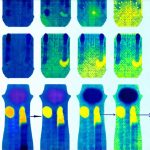Digestive health is often relegated to conversations about occasional discomfort – bloating, gas, maybe some irregularity. However, truly robust long-term well-being hinges on a consistently functioning digestive system. It’s the foundation upon which nutrient absorption, immune function, and even mental clarity are built. Ignoring persistent or subtle signs of digestive imbalance can lead to chronic health issues far beyond just gut discomfort, impacting everything from energy levels to mood and overall quality of life. Many individuals live with undiagnosed imbalances for years, attributing symptoms to stress or simply accepting them as “normal,” when proactive investigation could reveal underlying causes and unlock pathways to lasting improvement. Considering daily gut care habits can also be a preventative step.
The conventional approach often focuses on treating symptoms rather than identifying the root cause of digestive issues. This can involve medications to manage heartburn, laxatives for constipation, or dietary restrictions based on guesswork. While symptom management has its place, it doesn’t address the underlying mechanisms driving the problem. Increasingly, healthcare professionals are recognizing the power of functional and preventative medicine – approaches that seek to understand why someone is experiencing digestive issues, rather than just masking them. This shift is where stool testing emerges as a powerful diagnostic tool, capable of providing insights far beyond what traditional methods can offer. It’s about moving from reactive care to proactive understanding. Learning digestive awareness habits is also important for long term health.
The Power of Stool Testing: Beyond Basic Analysis
Stool testing, at its core, analyzes the contents of fecal matter to reveal critical information about digestive function and gut health. Historically, stool tests were limited to detecting basic indicators like blood or parasites. However, advancements in laboratory technology have dramatically expanded their capabilities. Modern comprehensive stool analysis (CSA) can now assess a wide range of parameters, including microbial balance, inflammatory markers, digestive enzyme activity, nutrient absorption, and even the presence of pathogenic bacteria or viruses. This detailed snapshot offers a far more nuanced understanding than ever before.
The value lies in its ability to move beyond subjective symptoms. Someone might experience bloating and gas, but identifying the cause – whether it’s small intestinal bacterial overgrowth (SIBO), insufficient digestive enzymes, or an imbalance in gut bacteria – is crucial for targeted intervention. A CSA can pinpoint these issues with a level of precision that other diagnostic methods often lack. It’s also non-invasive and relatively inexpensive compared to many other specialized tests like colonoscopies. Furthermore, it provides a baseline assessment allowing tracking changes over time as interventions are implemented. Understanding how digestive enzymes differ from probiotics can help in choosing the right support for your gut.
Unlike a single snapshot in time offered by some conventional tests, comprehensive stool analysis allows for a holistic view of the digestive ecosystem. This is particularly important because the gut microbiome – the trillions of bacteria, fungi, viruses and other microorganisms residing in our intestines – plays a pivotal role in overall health. Understanding its composition and functionality is essential for optimizing digestion, immune function, and even mental well-being. A healthy microbiome is diverse and balanced; imbalances can contribute to a wide range of health problems. How digestive rhythms can also play a role in overall gut health.
Uncovering Microbial Imbalances: Dysbiosis & SIBO
Dysbiosis, simply put, refers to an imbalance in the gut microbiome. It’s not necessarily about having “bad” bacteria – often it’s about an overgrowth of certain species and a corresponding reduction in beneficial ones. A CSA can identify specific imbalances, revealing which microbial populations are dominant and whether diversity is lacking. This information is vital because dysbiosis has been linked to conditions like irritable bowel syndrome (IBS), inflammatory bowel disease (IBD), autoimmune disorders, and even mental health issues. Identifying the nature of the imbalance allows for targeted interventions such as probiotic supplementation, dietary changes, or prebiotic strategies to promote a healthier microbiome.
Small Intestinal Bacterial Overgrowth (SIBO) is another common issue that can be detected through stool testing – specifically breath tests often used in conjunction with CSA results. SIBO occurs when excessive bacteria colonize the small intestine, where they shouldn’t be present in large numbers. This leads to fermentation of carbohydrates and production of gases like hydrogen and methane, causing symptoms like bloating, gas, abdominal pain, and diarrhea or constipation. Stool tests can help confirm suspected SIBO based on microbial markers and assess the type of bacteria involved (hydrogen-dominant, methane-dominant, or hydrogen sulfide-producing).
Treating SIBO requires a multifaceted approach, often involving dietary changes – like a low FODMAP diet – along with antimicrobial herbs or antibiotics to reduce bacterial overgrowth. However, simply eradicating the excess bacteria isn’t always enough. Addressing the root cause of SIBO is critical, as it frequently stems from underlying issues such as motility problems, structural abnormalities, or immune dysfunction. Stool testing can provide clues about these contributing factors, guiding a more comprehensive and effective treatment plan.
Assessing Digestive Capacity: Enzymes & Absorption
Efficient digestion relies on the production of various digestive enzymes – amylase (for carbohydrate breakdown), protease (for protein breakdown), and lipase (for fat breakdown). Deficiencies in these enzymes can lead to maldigestion, resulting in symptoms like bloating, gas, diarrhea, or undigested food particles in the stool. A comprehensive stool analysis can measure levels of pancreatic elastase – a marker of overall pancreatic function – as well as other enzyme activity indicators. Low levels suggest impaired digestive capacity and may warrant further investigation into pancreatic health or dietary adjustments to reduce the burden on digestion.
Nutrient absorption is another key aspect assessed through stool testing. It evaluates how effectively the body is absorbing essential vitamins, minerals, and fats. Markers like fecal fat content can indicate malabsorption issues, potentially due to deficiencies in bile acids or pancreatic enzymes. Similarly, levels of short-chain fatty acids (SCFAs) – produced by gut bacteria during fiber fermentation – provide insights into colonic health and overall metabolic function. Impaired absorption can lead to nutrient deficiencies and contribute to a wide range of health problems.
Identifying these digestive capacities allows for targeted interventions beyond simply recommending probiotics or dietary changes. It may involve supplementing with digestive enzymes, addressing bile acid insufficiency, or modifying the diet to improve fat digestion. The goal is to optimize nutrient uptake so the body receives the building blocks it needs to thrive. This is particularly important for individuals with chronic health conditions who may have increased nutritional demands.
Inflammation & Immune Markers: A Window into Gut Health
Chronic inflammation in the gut is a hallmark of many digestive disorders, including IBD and IBS. Stool testing can detect inflammatory markers like calprotectin and lactoferrin – proteins released by immune cells during inflammation. Elevated levels indicate active inflammation within the intestinal tract. While these markers aren’t specific to any particular condition, they provide valuable information about the severity of inflammation and help guide treatment decisions. It also helps differentiate between IBD and IBS which often present with similar symptoms.
Furthermore, stool testing can assess immune function by measuring secretory IgA (sIgA) – an antibody that plays a crucial role in protecting the gut lining from pathogens. Low levels of sIgA suggest impaired immune defense and increased susceptibility to infections. This is particularly important for individuals with compromised immune systems or those who frequently experience digestive symptoms after consuming certain foods.
Understanding the inflammatory status and immune function within the gut allows for targeted interventions aimed at reducing inflammation and strengthening the immune system. These may include dietary changes – like eliminating food sensitivities – incorporating anti-inflammatory nutrients, or addressing underlying immune imbalances. It’s a holistic approach that recognizes the interconnectedness between the gut, the immune system, and overall health.
Ultimately, stool testing isn’t a replacement for comprehensive medical evaluation but rather a powerful adjunct to it. It provides valuable data that can help healthcare professionals understand the root causes of digestive issues and develop personalized treatment plans. By moving beyond symptom management and embracing proactive investigation, we can unlock pathways to lasting digestive health and overall well-being. How to detect imbalances early on is key for preventative care. It may also be helpful to understand how diuretics disrupt digestive balance. And finally, knowing how to ease symptoms after a heavy meal can improve day-to-day comfort.


















